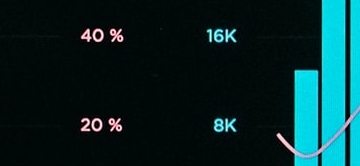The current coronavirus epidemic highlights many vulnerabilities in our health, economic and political systems. Among these, it is striking to realize that political debates such as election platforms have overshadowed the risk and uncertainty aspects of public decision-making, as well as vulnerabilities.
We never vote, either directly or indirectly through references in an election platform, for risk management methods. Yet the issues are many and crucial, as we are all discovering today. Although there are occasionally debates on the issue of the precautionary principle, they are relatively rare. During the debates on pension reform, very few questions have been asked about the uncertainties about future changes in the labour markets.
At what level of risk is it acceptable to sacrifice, for example, certain economic activities, and thus to bear a certain cost in exchange for a hypothetical benefit (obtained if the risk materializes)? One wonders today whether containment should have been decreed earlier, whether more fans should have been financed, etc. The question is whether it would have been better to have had it sooner, or whether it would have been necessary to finance more fans, etc. Looking at these questions in the light of the information we have today on the reality of the health risk will be less important, once the crisis has passed, than asking what rules we want to put in place to manage risks and sources of vulnerability.
For example, how can we arbitrate between the objective of rationalising hospital expenditure and maintaining a sufficient reserve to deal with certain risks that are sufficiently probable or sufficiently large? How to define what seems "sufficient"? We cannot prepare for all eventualities, it would be extremely costly. But we can try to decide collectively what constitutes an acceptable risk (in terms of its magnitude, or in terms of its probability of occurrence).
Similarly, our economies are vulnerable to certain external sources of supply. While many debates have focused, in France and the United States, on economic protectionism (the negative effects of which many economists agree to denounce), the question of maintaining a minimum of local activity in certain sectors, and for the production of certain essential products, in order to cope with a blockage of international transport, has not been raised. The current crisis makes the issue of vulnerabilities (in terms of international trade as well as many others) salient.
Economists, since F. Knight in 1921, have been distinguishing between risk and pure uncertainty, a notion linked to ambiguity. Risk is probabilistic uncertainty: We know that there is a 60% chance that tomorrow's weather will be good at a particular place. Pure uncertainty is a situation in which we do not know the probabilities well, i.e. we do not have any reference system that allows us to elaborate risk probabilities (such as a very new situation, or simply the weather in a place far from the world about which we have no knowledge), either that we are faced with several possible scenarios (as is often the case with global warming), or that we have an idea of the probabilities but little confidence in their value (we know we can be wrong, but we do not have an alternative scenario). The word of the experts is obviously essential to reduce uncertainties, but is often not enough to eliminate them. In the face of uncertainty, individuals may have different preferences. One of the possible preferences (formalized by I. Gilboa and D. Schmeidler in 1989) is, broadly speaking, to choose the action that is best in the event that the worst-case scenario occurs. This is extreme pessimism, which is obviously costly since it can lead to the adoption of measures that would only be appropriate for the realization of an unlikely scenario (the defect of the precautionary principle). Other preferences exist and seem more realistic. Public authorities do not currently have the means to assess what citizens, as a whole, want and accept, given the information available from experts on the various crises - health, social, environmental and terrorist - that we may face in the future.
A debate should take place, in due course, so that a collective preference can emerge over the management of uncertainties and vulnerabilities that we would like to see governments adopt. This would also help to avoid these public authorities being systematically held responsible either for a delay in managing a crisis or for excessive precautions.
TSE Mag #20: Spring 2020




